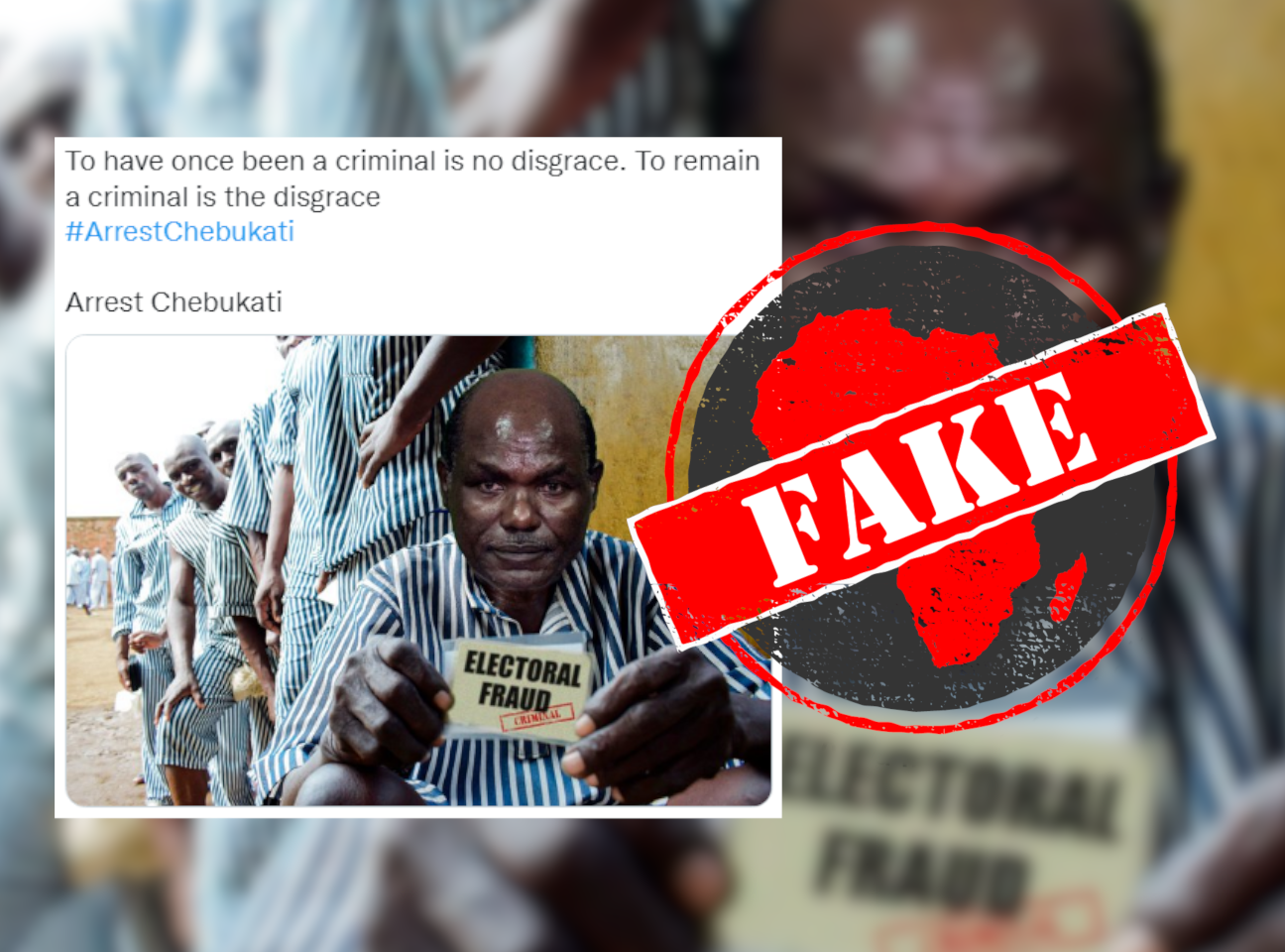IN SHORT: Wafula Chebukati has been under a harsh spotlight following the country’s tightly contested August 2022 polls. The losing side sought to portray him as a criminal, including through manipulating this image, but the supreme court’s upholding of the election result will have given him a measure of vindication.
An image posted on Facebook and Twitter shows a man who looks like the chair of the Kenyan electoral commission, Wafula Chebukati.
The man is wearing the uniform usually worn by Kenyan prisoners and behind him is a long queue of other people in similar uniform. He is holding a card on which “voter fraud” appears to be printed.
On Twitter, the image was captioned “To have once been a criminal is no disgrace. To remain a criminal is the disgrace”, with the hashtag “arrestChebukati”.
Kenyans voted in general elections on 9 August 2022. The frontrunners for the presidency were president-elect William Ruto of the United Democratic Alliance and Raila Odinga of the Azimio la Umoja One Kenya coalition.
Ruto’s victory was disputed by Odinga, who filed a petition in the supreme court. The court upheld Ruto’s win.
The image was posted on social media just days after Odinga accused Chebukati of failing to conduct a free and fair election. Odinga’s lawyers told the court that the chair should be charged in court for bungling the elections.
But is the image authentic? We checked.

Image altered
A reverse image search of the image reveals that it was first published in 2017 during Kenya’s previous general elections.
The original photo showed prisoners at a jail in Kisumu county in the west of the country lining up to vote.
It showed an unidentified man holding a national identity card and not Chebukati holding a card saying “voter fraud”. The original photo has been digitally manipulated to imply he is a criminal.
Republish our content for free
For publishers: what to do if your post is rated false
A fact-checker has rated your Facebook or Instagram post as “false”, “altered”, “partly false” or “missing context”. This could have serious consequences. What do you do?
Click on our guide for the steps you should follow.
Publishers guideAfrica Check teams up with Facebook
Africa Check is a partner in Meta's third-party fact-checking programme to help stop the spread of false information on social media.
The content we rate as “false” will be downgraded on Facebook and Instagram. This means fewer people will see it.
You can also help identify false information on Facebook. This guide explains how.





Add new comment